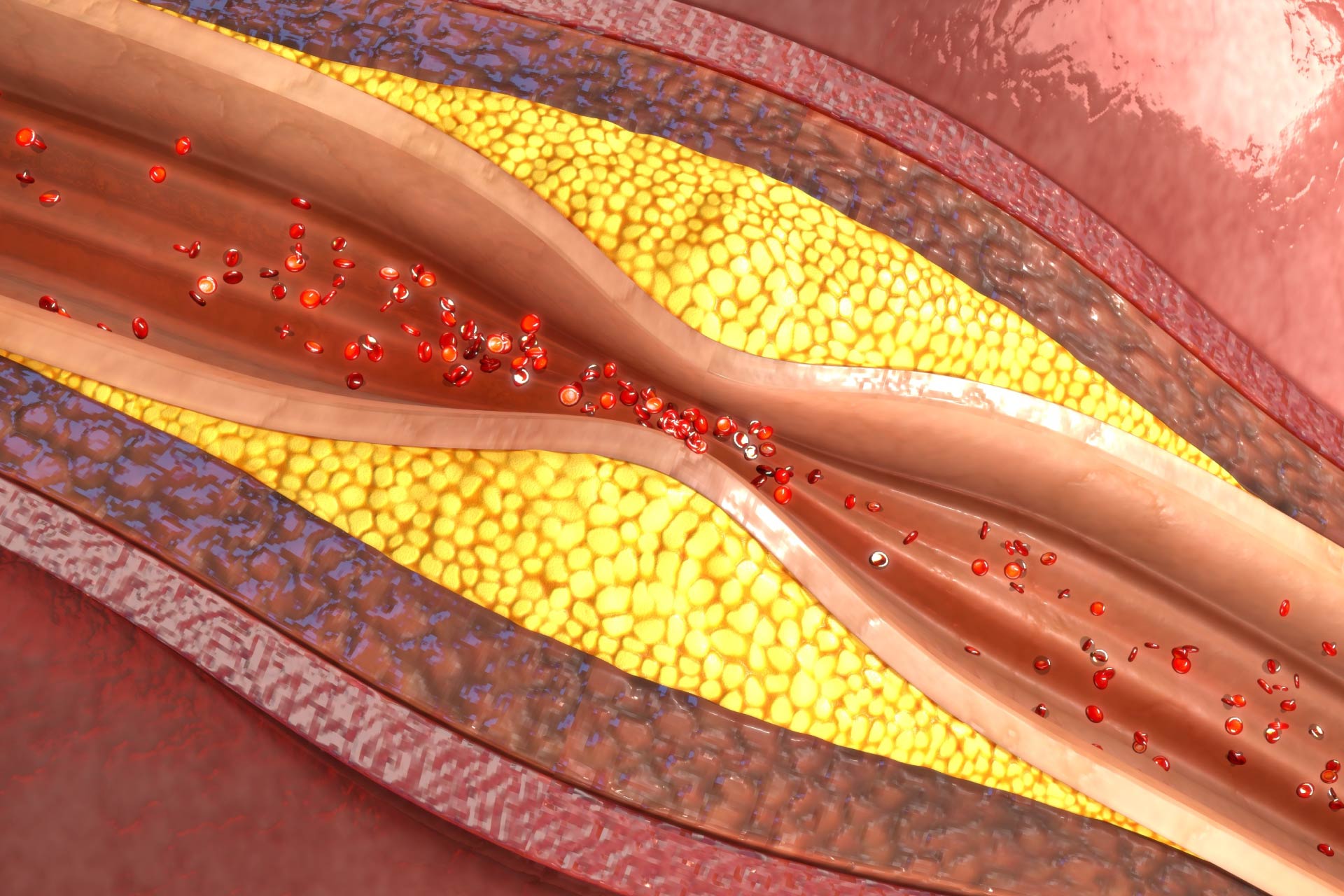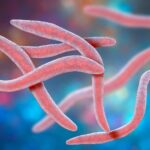• Molecule screen
• Beneficial communities
What is already known on this topic
Diets rich in carbohydrates, fats, and added sugars can alter the gut microbiota in ways that promote conditions such as atherosclerosis — the narrowing of arteries caused by the build-up of fats, cholesterol, and other substances, which can lead to heart attacks and strokes.What this research adds
Researchers have developed molecules that remodel the gut microbiota to a healthier state in mice, reducing cholesterol levels and inhibiting atherosclerosis.Conclusion
The findings suggest that a healthy gut microbiota can lower cholesterol and other risk factors for heart attacks. Compounds that remodel the microbiota could be used to prevent several conditions that have been linked to an unhealthy microbiota, including diabetes.
Diets rich in carbohydrates, fats, and added sugars can alter the gut microbiota in ways that promote conditions such as atherosclerosis — the narrowing of arteries caused by the build-up of fats, cholesterol and other substances, which can lead to heart attacks and strokes. Now researchers have developed molecules that remodel the gut microbiota to a healthier state in mice, reducing cholesterol levels and inhibiting atherosclerosis.
The findings, published in Nature Biotechnology, suggest that a healthy gut microbiota can lower cholesterol and other risk factors for heart attacks. “It was surprising to us that simply remodeling the gut microbiome can have such an extensive effect,” says study co-author Reza Ghadiri at the Scripps Research Institute.
Previous studies have shown that the risk of developing conditions such as obesity, diabetes, and atherosclerosis is due in part to adverse changes in the gut microbiota, which are often promoted by the fat-rich Western diet. Looking for ways to remodel the microbiota, Ghadiri and his team developed molecules that kill or slow the growth of ‘deleterious’ gut bacteria without affecting beneficial ones.
“Our approach, using small molecules called cyclic peptides, is inspired by nature,” says study co-author Luke Leman. “Our cells naturally use a diverse collection of molecules including antimicrobial peptides to regulate our gut microbe populations.”
Molecule screen
The researchers set out to screen a collection of 29 peptides that weren’t toxic to the cells of mammals to determine if any of those molecules could remodel the gut microbiota. To do so, the team first fed a Western-type diet to mice that are genetically susceptible to high cholesterol. The diet altered the rodents’ gut microbiota and induced high blood cholesterol and narrowing of arteries.
Then the researchers collected stool samples from the mice and applied a different peptide to each sample. A day later, they sequenced the bacterial DNA in the samples to determine which peptides had shifted the community of gut bacteria in the desired direction.
Sixteen of the peptides considerably increased the Bacteroidetes/Firmicutes ratio, whereas three peptides decreased the ratio. After ranking the compounds based on how well they suppressed the bacterial species that grew in abundance in animals fed a Western diet, the researchers chose two peptides for further studies.
Beneficial communities
The team tested the peptides on atherosclerosis-prone mice that were fed a Western diet. After two weeks of treatment, both molecules reduced the animals’ blood levels of cholesterol by about 36% compared to untreated mice. What’s more, peptide treatment induced metabolic changes in the gut microbiota, including improved metabolism of amino-acids and short-chain fatty acids.
After 10 weeks, the build-up of fats, cholesterol, and other substances on the artery walls, known as atherosclerotic plaques, was reduced in area by about 40% in treated rodents compared to untreated ones. Peptide treatment also reduced inflammation by decreasing the number of pro-inflammatory immune cells — likely as a result of the remodeling of the gut microbiota.
Although more work is needed to confirm the findings in other animal models, compounds that shape the composition of gut microbes could be used to prevent several conditions that have been linked to an unhealthy microbiota such as diabetes, the researchers say.











